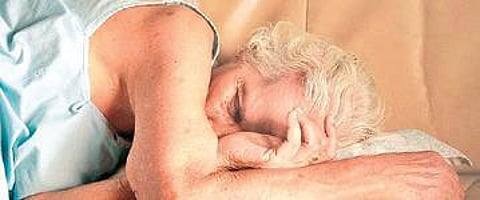

BENGALURU: First identified over a 100 years ago, Alzheimer’s disease has no major medication till date that can assist in permanent treatment. However, after nearly a decade of research, scientists from the Jawaharlal Nehru Centre for Advanced Scientific Research (JNCASR), Bengaluru, have developed a molecule that disrupts the mechanism through which neurons become dysfunctional due to Alzheimer’s.
Dr T Govindaraju, Professor, JNCASR, and his team have developed the molecule that could be a potential drug candidate to halt or cure the leading cause of dementia (70-80 per cent) worldwide. The team’s research was published recently in the journal Advanced Therapeutics.
“According to studies, Alzheimer’s will soon be one of the top diseases in the country. Earlier, cancer and cardiac ailments were one of the biggest problems. Currently available treatments for Alzheimer’s provide only temporary relief, and there are no approved drugs that directly act on the mechanisms of the disease. So, there is an unmet need to develop drug candidates to halt or cure the disease,” felt Dr Govindaraju.
He and his team designed and synthesised molecules which can reduce the toxicity of-amyloid peptide—that accumulates in the central nervous system. “The molecule, called TGR63, can rescue neuronal cells from amyloid toxicity. We saw that the molecule helped in reducing the clumping and slowly reversing the cognitive decline,” he claimed.
Dr Govindaraju added that the experiment was carried out on mice with and without Alzheimer’s disease. “Mice brain affected with Alzheimer’s showed a significant reduction of amyloid deposits when treated with TGR63. The mice also showed reduction in learning deficiency, memory impairment and cognitive decline as revealed by distinct behavioural tests.
These key attributes have validated the potential of TGR63 as a promising drug candidate,” he said. “We are looking for pharmaceutical companies to fund our project to start clinical trials,” Dr Govindaraju said.